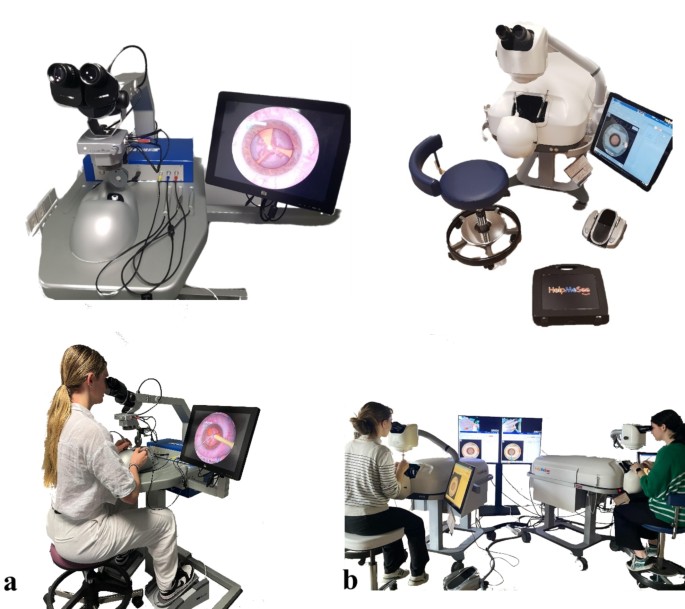Research Design and Setting: A Cross-Sectional, Non-Randomised Cohort Study in Ophthalmology Department at University Hospital of Strasbourg
A groundbreaking study conducted at the University Hospital of Strasbourg and Gepromed Education Department in France has shed light on the effectiveness of virtual reality simulators in training ophthalmic surgeons. The research, approved by the ethics committee of the Faculty of Medicine at Strasbourg, aimed to compare the performance of experienced and novice surgeons in phacoemulsification procedures using two different simulators.
The study, which took place between January and February 2024, involved two groups of participants: one group with over 300 cataract surgeries under their belt, and another group with less than 300 surgeries. Surgeons were recruited from both the university hospital and private practices in the Strasbourg area. Prior to the simulation sessions, participants filled out a personal survey detailing their experience, exposure to surgical simulators, and factors influencing their practice.
Two virtual reality simulators, the EyeSi VR Magic simulator and the HelpMeSee simulator, were used for the study. Surgeons were evaluated based on their performance on various modules of the simulators, with objective measurements taken using a Handgrip Dynamometer to assess grip strength and fatigue. The study aimed to assess the intrinsic and extrinsic validity of the HelpMeSee simulator by comparing scores between the two groups and correlating them with scores from the EyeSi simulator.
Statistical analysis of the data collected revealed significant differences in performance between the two groups, with experienced surgeons outperforming their less experienced counterparts. Factors such as grip strength, previous exposure to simulators, and time since last surgery were found to influence surgical performance in the simulated environment.
Overall, the study provides valuable insights into the use of virtual reality simulators for surgical training and highlights the importance of experience and practice in achieving proficiency in complex surgical procedures. The findings have the potential to inform future training programs for ophthalmic surgeons and improve patient outcomes in cataract surgeries.
